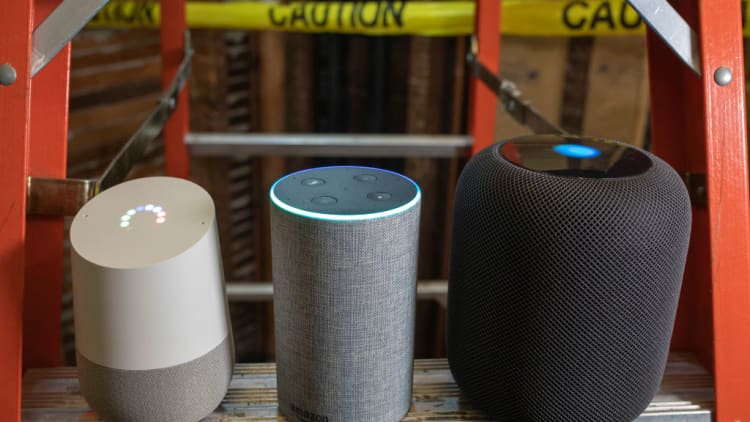The British Broadcasting Corporation (BBC) will launch a digital voice assistant in 2020, but rather than deploying a separate piece of hardware, it will work across different devices.
People will be able to listen to content via their mobile phone, TV and smart speakers, according to a report on the BBC's website.
BBC staff are recording their own voices to help train the assistant to recognize different accents, the report said.
Instead of producing a new smart speaker device, the BBC will embed its voice technology into its website and its on-demand iPlayer app. The working title for the "wake" word is "Beeb," the BBC said in an emailed statement.
"Much like we did with (on-demand service) BBC iPlayer, we want to make sure everyone can benefit from this new technology, and bring people exciting new content, programs and services — in a trusted, easy-to-use way," a spokesperson said in the BBC's own report.
Whether people will be able to use Alexa on their Amazon Echo, for example, and then "switch" to the BBC's voice assistant on the same device isn't clear at the moment, as the technology is still being developed, according to a spokesperson CNBC contacted by phone. But it could be similar to how someone switches between apps that they tap to access on their smartphones, for example, which might involve the BBC doing deals with different voice-activated device makers.
The BBC is already present on Google Home and Amazon Echo, but having its own voice assistant means the BBC would be freer to create the content it wants to — its current content is bound to an extent by the constraints that Amazon puts on it, for example.
"The BBC already has a successful relationship with other providers in order to provide access to BBC services through voice enabled devices. With an assistant of its own, the BBC will have the freedom to experiment with new programmes, features and experiences without someone else's permission to build it in a certain way. It will also allow the BBC to be much more ambitious in the content and features that listeners can enjoy," the statement said.

People can also listen to the BBC via the TuneIn radio app on Alexa, a deal which is ending on August 30, because information on who is listening is not shared with the BBC. When the BBC works with third parties on content distribution, it asks them to provide data on who is listening — or asks people to sign in to their BBC account. This is so it can gather audience data to make more relevant programs and "something for all audiences," according to the BBC's Director of Distribution and Business Development Kieran Clifton, in an online statement.
Creating its own assistant is also likely to be a bet on a future where rising numbers of people will be using their voice to operate smart TVs, smart speakers and wearable devices, and are likely to want to pick up where they left off on different gadgets. According to Juniper Research, the number of voice assistants used by consumers globally will rise to 8 billion by 2023, up from about 2.5 billion at the end of 2018.
New companies will emerge that are solely available via voice, according to venture capitalist Mark Tluszcz, co-founder and CEO of Mangrove Capital Partners. He told CNBC in April that voice recognition is a "cataclysmic change to the user experience." Amazon, Baidu and Google dominate the market for smart speakers, according to consultancy Canalys, and Facebook is working on a rival assistant, it was revealed in April.
Like other broadcasters, the BBC is investing in new technology as viewing habits shift. In July, it announced its new streaming service BritBox will launch at the end of the year, a partnership with commercial station ITV. But unlike the BBC's other services, which are covered by an annual license fee of £154.50 ($189.62), BritBox will cost £5.99 ($7.50) per month.

